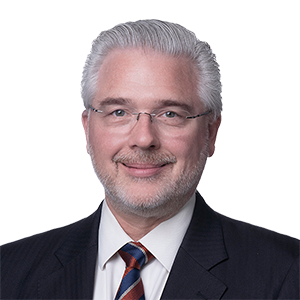
Beneficial ownership registers: Regulation Around the World
Global | Publication | March 2023
In this edition of Regulation Around the World we review the position regarding beneficial ownership registers which has come into the spotlight following work by the Financial Action Task Force and the introduction of reforms in a number of jurisdictions. Identifying beneficial owners has always been a difficult task for both regulators and financial institutions themselves given that it can be obscured through, for example, shell companies and/or complex ownership and control structures, and the position has recently become even more pressing following the sanctions levied on Russia following its invasion of Ukraine. Should beneficial ownership registers become more common they would provide an important tool for cross-checking underlying customer data and proactively identify relevant sanctions exposure by looking beyond immediate corporate ownership.
Key considerations include:
- Global – The FATF has recently published updated guidance on Recommendation 24 and a revised version of the FATF recommendations to reflect revisions to Recommendation 25 on the transparency and beneficial ownership of legal arrangements and its interpretative note. The FATF has also recently revised the definitions in the glossary to its recommendations of "beneficial ownership", "beneficiary" and "legal arrangements" to provide more clarity on legal arrangements.
- United Kingdom – The UK has three registers, the People with Significant Control register, the trusts register and the Overseas Entities register. In terms of the latter, overseas entities had to register with Companies House and tell them who their registrable beneficial owners or managing officers were by January 31, 2023. However, in February 2023 it was noted in the media that almost half of the companies required to declare their ownership had failed to do so. Changes are also being made to the UK registers via the Economic Crime and Corporate Transparency Bill which is currently making its way through Parliament.
- United States – The Corporate Transparency Act (CTA) is bolstering the US corporate transparency framework and addressing deficiencies in the anti-money laundering framework. Under the CTA FinCEN is in the process of enacting regulations to provide the details as to how a corporate registry of beneficial ownership information will be organized.
- Canada – Corporations governed by the Canada Business Corporations Act (CBCA) are required to maintain a securities register of all individuals with “significant control” over the corporation. On June 23, 2022, amendments to the CBCA requiring private corporations to regularly report beneficial ownership information to Corporations Canada received royal assent. The relevant provisions have not yet been proclaimed into force.
- Europe – On November 22, 2022 the Court of Justice of the European Union (CJEU) issued a decision with respect to a matter regarding the public beneficial ownership register in Luxembourg which was challenged by the beneficial owner of a company. Also, the European Commission has adopted a package of measures to strengthen the EU’s anti-money laundering regime. This includes a Sixth Anti-Money Laundering Directive and a First Anti-Money Laundering Regulation.
- Netherlands – The Dutch Act on the registration of ultimate beneficial owners of corporate entities and other legal entities was adopted on June 23, 2020 in light of the Fourth Anti-Money Laundering Directive. At present whilst the register may be consulted by authorities such as the Public Prosecution Service, the general public cannot consult it.
- France – France is strongly committed to the fight for transparency of the beneficial owners of companies. On January 19, 2023 Bruno Le Maire, Minister of the Economy, Finance and Industrial and Digital Sovereignty, issued a press release stating that he had decided to maintain public access to the data of the register of beneficial owners pending drawing in all the consequences of the CJEU’s judgment.
- Germany – On August 1, 2021 the Transparency Register and Financial Information Act (Transparenzregister- und Finanzinformationsgesetz / TraFinG) came into force and obliges companies to identify their beneficial owners and declare them on a transparency register. Also, the obligations of foreign entities to collect, keep up-to-date, and file information on their beneficial owners with the transparency register were expanded to cover share deals and other transaction structures resulting in an indirect acquisition of German real estate.
- Luxembourg – Luxembourg’s Registre des Beneficiaires Effectifs (RBE), can be consulted in French, English and German but the excerpts are in French or German depending on the language used for the filling. Luxmbourg Business Register have restored access to the RBE albeit on a restricted basis.
- Italy – While Italy has adopted the legislative measures aimed at introducing the beneficial ownership register, in the context of transposing the Fourth Anti-Money Laundering Directive into Italian law, the register has not yet been activated.
- United Arab Emirates - Cabinet Resolution No.58 of 2020 introduced a new requirement for companies licensed in the UAE to maintain a register of beneficial owners, shareholders and nominee board members. Both direct and indirect ownership/control are to be considered.
- Australia – The new Labor Government has released a consultation paper in which it announced that it will implement a public registry of beneficial ownership to improve transparency on corporate structures, in order to show who ultimately owns or controls a company or other legal entity.
- Hong Kong – The Companies (Amendment) Ordinance 2018 requires companies incorporated in Hong Kong to maintain beneficial ownership information by way of keeping a "significant controllers register".
- Singapore – Since July 30, 2020 entities not only have to maintain their own register of registrable controllers but they must also lodge the same information with ACRA’s central register. Information in the central register is only made available to law enforcement agencies.
- Shanghai – On December 27, 2021 the Peoples Bank of China and State Administration for Market Regulation published the draft Interim Measures on Information Filing of Ultimate Beneficial Owners of Market Entities for public consultation. The Draft Interim Measures were due to take effect from March 1, 2022 but this has been delayed and the timing for its official promulgation is unclear.
- South Africa – Amendments to the Trust Property Control Act, 1988 and the Companies Act, 2008, lay the basis for South Africa to develop a mechanism to bring transparency to the beneficial ownership of corporate vehicles such as trusts and companies. The majority of these amendments commenced on April 1, 2023.
- Turkey - Corporate taxpayers and managers, trustees or representatives of trusts and similar entities established in a foreign country that have their headquarters in Turkey or have a resident manager in Turkey are obliged to make an ultimate beneficiary owner information notification to the Revenue Administration.
Subscribe and stay up to date with the latest legal news, information and events . . .























